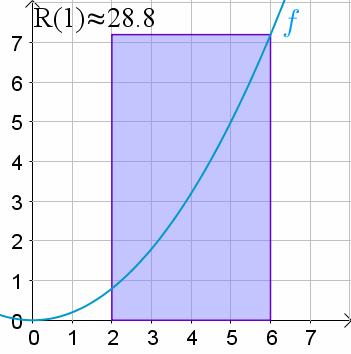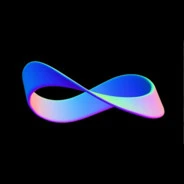i hate that we all got so frightened about math. it’s genuinely fun to learn how it works when you’re not being forced to in a school setting, which was just a fucking nightmare for no reason. i had this former navy DI lady teacher in gifted kid algebra [so already a year ahead] yell at me for asking questions; she wasn’t going to ‘hold my hand’ thru the homework, which was quite literally her fucking job
Idk man I’ve been doing my Cal 3 and 4 this semester and fuck me it’s hard. Yeah sure it’s cool sometimes but wrapping my head around it and often trying to think about things geometrically hurts. I sat there for a full hour trying to figure out why I couldn’t picture the equation I was trying to take a triple integral of only to realize it’s 4 dimensional and I almost cried
Turning 35 in a month and I’ve just started learning maths again after being afraid of it because of a similar situation to yours.
It’s surprisingly easy. I used tl give maths tutoring to finance my university degree. What I’d do is let the kids do one exercise task from their school books to see where their difficulties were. While they were on it, I quickly read through the relevant sections in the book, and it was so easy every time that I knew everything I needed to know after a few minutes. Like literally stuff that took weeks at school within minutes.
School just sucks and makes it really hard to learn anything. Almost everything kids learn at school is actually really easy.
Well it’s harder for them because they are kids and their brains are still developing. You’ve had a lifetime of experiences to draw from where you use math concepts subconsciously many times a day.
Totally true. They haven’t learned to learn yet, they aren’t learning because they want to, or even because they need what they learned.
But the point I was trying to make is, that many adults are still afraid (and many even strongly so) of maths, because it was hard for them at school. But it probably wouldn’t be hard for them now.
Sorry you were put through that. Aggressions are no place for learning
My family and school were god awful at teaching. It was all forced (rote memorisation) learning and not me actually learning. I needed things taught slowly and broken down. I have wanted to learn the more advanced technical maths long ago, but now I am an adult and need to find a safe, quite and gentle environment where i can
anybody reading this, please do not give suggestions or advice in replies. thank you.
My advice is to keep something to yourself if you don’t want to listen to peoples opinions about it.
Fear fear fear. The same old, actually hollow from the inside, villian that bugs me everywhere
This post confuses me. Why would code be simpler than the math notation? Both involve symbolic abstraction of basically the same complexity
Its got to be a relatively small group who knows enough to understand loops and is also afraid of math symbols.
Hi, I’m the problem. It’s me.
Maybe not so small?
I never encountered these math symbols but for loops are like step 3 in any programming language after variables and conditionals
lol, like 2.5% of the USA are programmers and even if we say twice that number have experimented and taken programming classes, that’s like 1 in 20 people who would even have ever encountered a for loop. This nsf report says ~70% of highschoolers have taken Algebra 2 or a more advanced math course, which is when sum notation is usually introduced. I think 70% is a little greater than 5%!
I’m a subscriber to her YouTube(one of my favourite videos of hers) and she has a bunch of videos aimed at helping game developers learn the maths concepts they need for making games, so her audience is mostly people with a coding background, I’m guessing.
So it’s less that code is simpler than math notation, more that the maths notation looks scary to people without a maths background, but here’s a link to a different complex symbolic abstraction that you might already know
Yea that’s not explained better than a math teach. They just swapped notation common in math, for notation common in one specific programming language. it’s only easier for the audience who happens to be familiar with programming in general, and that language in particular.
I think the concept of a for loop is easier to learn, even for non-programmers, as biased as I may be.
one specific programming language
I think you’d be hard pressed to find someone with any sort of programming background, even just as a hobbyist, who doesn’t understand that for loop notation, whether or not they know the specific language it’s from. (I couldn’t even tell you what specific language that’s from, because that notation matches so many different ones.)
I have a 15 year old son; he definitely has not seen summation in math classes yet, but he has far more than enough programming experience (even just from school) to understand the for loop.
People who are arguing that one way of expressing these concepts is easier to learn/understand than the other are missing the whole point. Mathematical notation was not designed to teach students how to do math or explain how to design algorithms. It was invented to communicate precise, abstract ideas concisely between mathematicians who already understand what the symbols mean.
Mathematicians require a notation that has the flexibility to manipulate mathematical objects/symbols in a way that naturally emphasizes their properties and relationships. Often they don’t even care whether the objects they’re studying are even computable or have a numerical representation. They just need them to have certain properties so that they can be manipulated appropriately.
Discrete sums are a rare example of when the mathematical notation overlaps with the description of an algorithm for computing its value (and the overlap is not even complete; infinite sums are easily represented in math notation but are practically uncomputable when implemented naively). Every other advanced mathematical concept puts a premium on ease of symbol manipulation over computability: integrals, derivatives, matrix multiplication, abstract algebra, etc.
TL;DR math notation is complex because its intended audience is people who already understand it, want maximum flexibility of symbol manipulation, and historically didn’t really care about practical computation.
When you study CompSci (depending on where IG) you tend to see them that way when trying to mathematically prove something about an algorithm. It’s only really a good way of thinking if you’re into coding, but I don’t think a teacher for a non-coding related algebra class should show this, it can be really confusing for some people.
I liked this so much I tried to find more. A few seconds googling turned up a lot, but this is the first hit: https://amitness.com/2019/08/math-for-programmers/
Hi, you can look into “discrete mathematics” if you’re interested in the overall subject of math for programmers, it was one of my hardest class but highly intesting!
That sounds perfect because I don’t want anyone to know I’m studying math.
Maybe I’m crazy but they did teach me this in school. “This means so this operation until conditions are met”.
In a way I always thought coding was more intuitive than maths writing norms. That is if you speak English. If not, it’s as much daunting as weird greek symbols.
The hard part of math isn’t understanding esoteric symbols it’s the theory behind it and it’s application. Number theory will mindbreak almost all people.
The hardest thing for me about math was the symbols. Greek, Roman, English.
Once you get past that, the numbers are easy.
You can reduce this readable code into one line of confusing python list comprehension that runs 100x slower!
Oh cool, I know who this person is, she did a couple of amazing videos on Bezier curves and splines
Here is an alternative Piped link(s): https://piped.video/aVwxzDHniEw
Piped is a privacy-respecting open-source alternative frontend to YouTube.
I’m open-source, check me out at GitHub.
Just notational difference other than presence of mutation… How is it harder to understand
3 + 6 + 9 + ... + 3nmeans compared to the for loop? Is repeated addition hard to grasp?I think gamedev or I guess graphics programming, visualize maths pretty well. I literally quit high school because I could never make any progress in several areas, including math class. But once I read/watch more about gamedev, programming, graphics programming on my own, I got to understand many mathematical terminologies better than I have ever been taught in any school.
Which makes the integral sign ∫ a non-discrete for-loop
That does not help. What does non-discrete mean?
Continuous.
Instead of jumping from 1 to 2 to 3, we move smoothly across all (typically real) numbers. Obviously this would go to infinity almost every time because there are infinite real numbers between any two distinct real numbers. So instead, we merge it into a bunch of skinny rectangles with their bottom on the x axis and the top at the value of the function for the start of the rectangle. As we shrink the width of the rectangles, it approaches the continuous notion.
Continuous means “smooth” - there are no jumps Discrete means there are jump

than
Ok now try infinite for loops
while
O(n)
javascript be like: (crashes browser)














